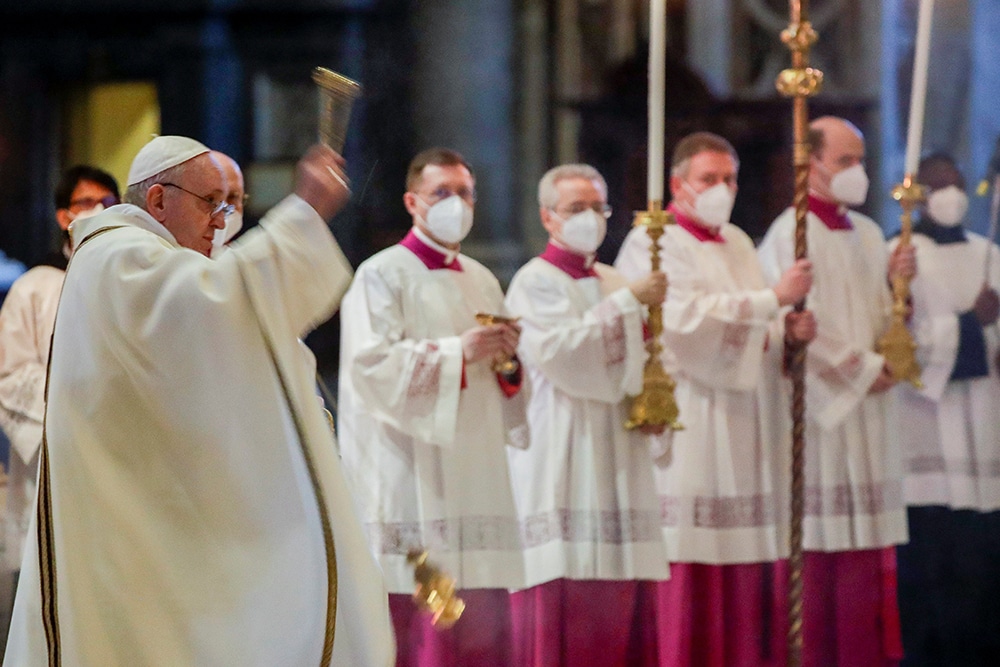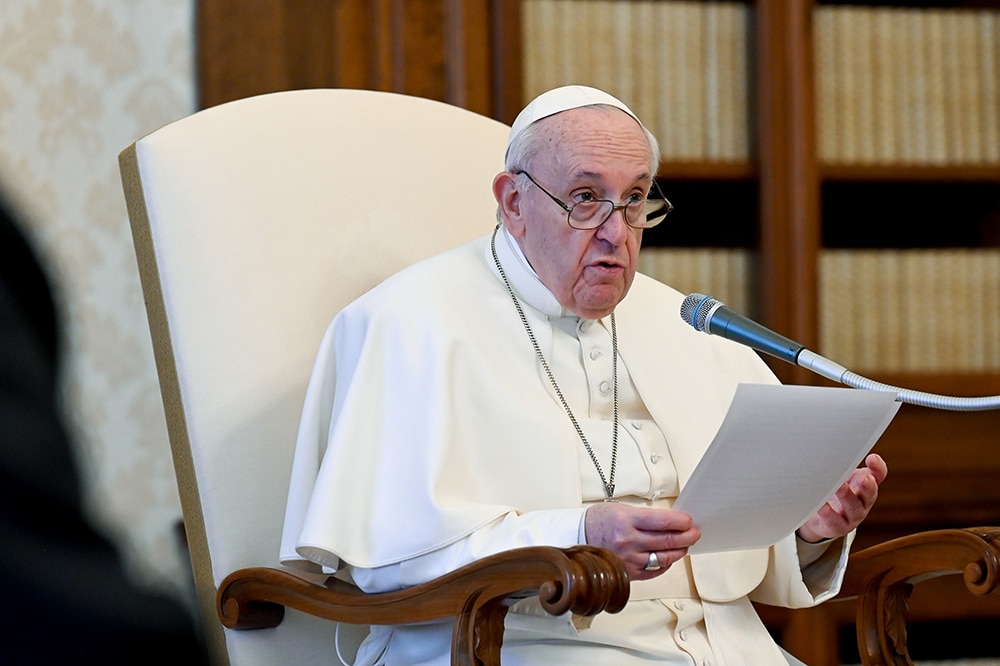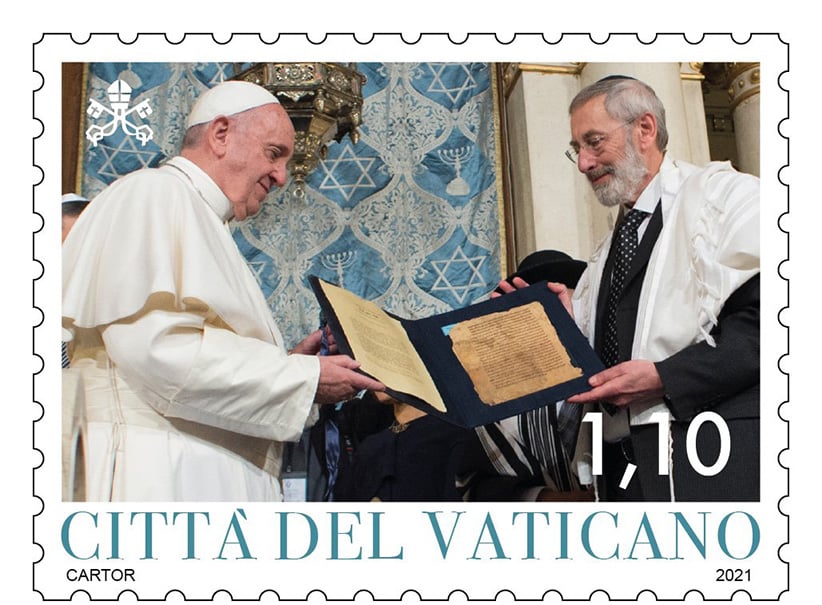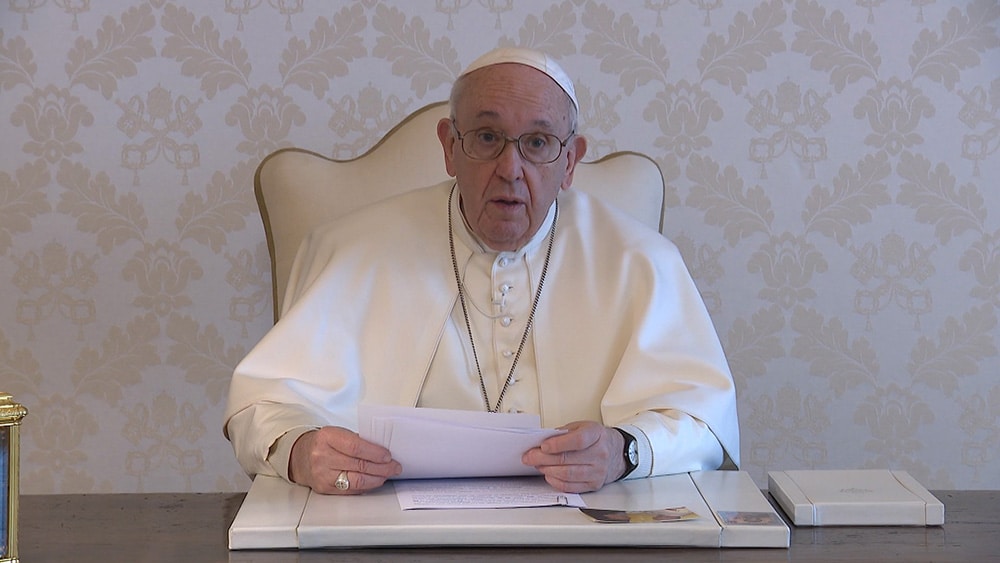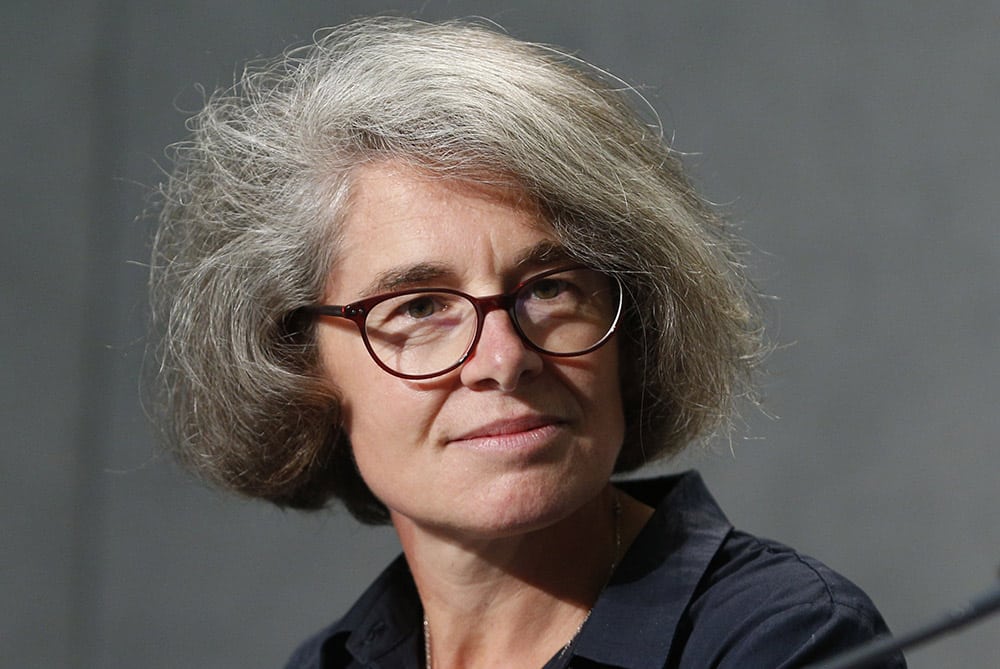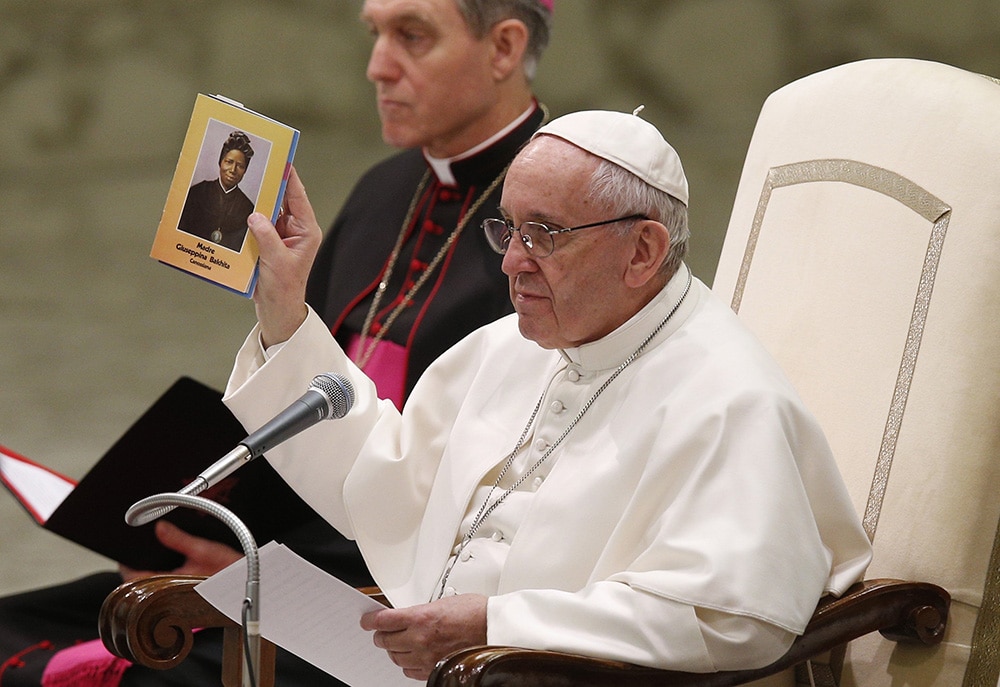VATICAN CITY (CNS) — Christian hope is rooted in the knowledge that God is patient with all his children, even when they stray from the path set before them, Pope Francis told consecrated men and women.
Celebrating the World Day for Consecrated Life Feb. 2, the pope told women and men religious that God’s love is “not weighed in the balance of our human calculations, but unstintingly gives us the courage to start anew.”
“This is the reason for our hope: that God never tires of waiting for us,” he said. “When we turn away, he comes looking for us; when we fall, he lifts us to our feet; when we return to him after losing our way, he waits for us with open arms.”
About 150 religious men and women, all wearing masks, were in the socially distanced congregation for the celebration of Candlemas — the feast of the Presentation of the Lord — which also marks the Vatican celebration of the World Day for Consecrated Life.
Led by several candle-bearing acolytes, Pope Francis processed toward the Altar of the Chair in a darkened St. Peter’s Basilica, faintly lit by the congregation’s candles as the choir proclaimed in song, “O radiant light, eternal splendor of the father, Christ the Lord immortal.”
In his homily at the Mass with religious, the pope reflected on the example of the elderly Simeon, who “patiently awaited the fulfilment of the Lord’s promises” and the coming of the Messiah.
Simeon, he said, learned that God “does not come in extraordinary events,” nor did he “grow weary with the passage of time” and lose hope.
“He trusted in the promise and did not let himself be consumed by regret for times past or by the sense of despondency that can come as we approach the twilight of our lives,” the pope said.
This exemplary patience, he continued, was “born of prayer and the history of his people” who had always experienced a merciful God that remained patient for centuries, “even in the face of rejection and infidelity.”
“The patience of Simeon is thus a mirror of God’s own patience,” the pope said. “From prayer and the history of his people, Simeon had learned that God is indeed patient.”
Drawing from the example of God and Simeon’s patience, the pope urged religious men and women to reflect on what role patience plays in their lives and to realize that “it is not simply about tolerating difficulties or showing grim determination in the face of hardship.”
“Patience is not a sign of weakness, but the strength of spirit that enables us to ‘carry the burden’ of personal and community problems, to accept others as different from ourselves, to persevere in goodness when all seems lost, and to keep advancing even when overcome by fatigue and listlessness,” he said.
Pope Francis also proposed “three settings” in religious life where patience can become a concrete reality, beginning with one’s personal life.
While religious men and women at one point responded to God’s call by offering their lives “with enthusiasm and generosity,” the pope said there are times when hard work fails and eventually, “the ardor of our prayer cools and we are no longer immune to spiritual aridity.”
“We have to be patient with ourselves and await in hope God’s own times and places, for he remains ever faithful to his promises,” the pope said. “Remembering this can help us retrace our steps and revive our dreams, rather than yielding to interior sadness and discouragement.”
Community life, he continued, is another area where patience is needed, especially when conflicts arise with “no immediate solution” and only time can help “to preserve peace and to wait for a better time to resolve situations in charity and in truth.”
“Let us keep in mind that the Lord does not call us to be soloists, but to be part of a choir that can sometimes miss a note or two, but must always try to sing in unison,” the pope said.
Lastly, religious men and women must show patience in their relationship with the world. The pope called on those in consecrated life to follow the example of Simeon and Anna, who “did not complain about how wrong things are, but patiently looked for the light shining in the darkness of history.”
“We, too, need that kind of patience, so as not to fall into the trap of lamenting that ‘the world no longer listens to us,’ or ‘we have no more vocations,’ ‘these are not easy times,'” Pope Francis said.
“These are real challenges for our consecrated life: We cannot remain stuck in nostalgia for the past or simply keep repeating the same old things. We need patience and courage in order to keep advancing, exploring new paths and responding to the promptings of the Holy Spirit,” he said.

